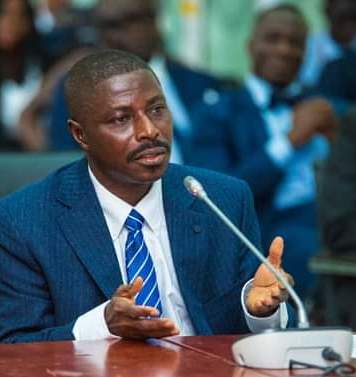
A Supreme Court nominee, Justice Samuel Kwame Adibu Asiedu, has downplayed concerns about the increasing number of appointments to the country’s Supreme Court, saying the apex court’s workload require 21 Justices to function effectively.
Currently, he said, the 14 Justices appointed to the court were not enough in carrying out its various mandates which includes original jurisdiction, appellate jurisdiction, and constitutional jurisdiction, among others.
Speaking in Accra yesterday during his vetting by the Appointment Committee of Parliament, he explained that, the workload on the Supreme Court had been maximised due to the public’s preference to seek redress most often at the Supreme Court.
To this end, he noted that, an increased number of Justices at the Court would ensure quick hearing and disposal of cases to promote justice delivery.
“Currently the number of Justices at the Supreme Court is not enough considering the workload on them. The court hears appeals from the High Court, Court of Appeal, the National House of Chiefs and other relevant bodies.
For me, 21 Justices to the Supreme Court will be okay,” Justice Asiedu added.
Detailing the workload, he said, under the court’s constitutional jurisdiction alone, it was undertaking enforcement, judicial review of legislations and interpreting the Constitution.
On concerns about the impact of an increased number of Justices on the country’s scarce resources, he explained that, “the work of the Judiciary is to ensure peace and social development, which are expensive.”
Justice Asiedu said, in the absence of an effective Judiciary, there was likely to be no law and order with devastating consequences.
He advocated amendment to the country’s criminal sanctions regime to include community service as a way of decongesting prisons across the country.
The current situation where all convicted persons were imprisoned, he added, was rather a drain on state resources.
“Community service is the best punitive way to reform offenders as it helps to reduce custodial sentencing to free our prisons from overcrowding .
It makes the offenders also contribute to nation building by making them productive. It is better to make them work in their communities than to keep them and feed them three times per day,” Justice Asiedu noted.
Alternatively, he said, harmless convicted persons could be allowed to visit their families and friends during weekends and holidays as a prison decongestion strategy.
He proposed the establishment of administrative tribunals to deal with cases of land disputes to end case delays.
The Supreme Court Justice nominee called on Parliament to amend the provisions on death penalty in the Criminal Offenses Act saying that, although it was not being applied lately, the courts were bound to use it in the administration of Justice.
To deal with recent misconducts by some religious leaders, he called for regulations to guide some religious practices to protect the vulnerable in society.
Justice Asiedu urged for nationwide education on illegal mining, popularly known as ‘galamsey’ to help clamp down on the menace and urged government to consider ways of improving livelihoods in mining communities as well as providing the needed incentives to encourage the youth to take up farming.
Currently a Justice of the Court of Appeal, Justice Asiedu is one of four Justices nominated by President Nana Akufo-Addo in July this year for appointment to the Supreme Court.
The rest are Justice Babara Frances Ackah-Yensu, Justice of Court of Appeal; Justice George Kingsley Koomson, Justice of Court of Appeal and Justice Ernest Yao Gaewu, Justice of the High Court.
According to a statement signed by President Akufo-Addo the nominations were “as a result of the projected vacancies on the Supreme Court this year.
It said upon the receipt of the Judicial Council’s advice and by the President’s duty under Article 144 (2), he consulted with the Council of State by submitting the names and curriculum vitae of the nominees for appointment to the court.
“The Council of State has by a letter dated July 25, 2022 notified me of the successful completion of the consultation process,” it said.
BY CLAUDE NYARKO ADAMS





